- Will YOU be affected by the ‘tourist tax’? Email Sam.Lawley@mailonline.co.uk
Oxford is plotting a £2-a-night tax on overnight visitors staying in a hotel or college room in a bid to swell council coffers.
Guests would be charged for each night they spend in the historic city under new plans that officials estimate could raise £2.5 million every year in tax receipts.
Funds racked up by the levy would go towards ‘improving’ Oxford for both residents and tourists, councilors at a scrutiny committee meeting on Tuesday heard.
Self-catering accommodation and AirBnbs would be exempt from collecting the tax as they are not included in the business rate database, the Telegraph reports.
Diana Fawcett, Oxford council’s city centre manager, said: ‘It’s not really just about our tourists – it’s about anybody who uses the city.
‘So whether you live here, whether you work here, whether you’re a student here, as well as a tourist, we want to improve that experience.’
Council bosses calculate that the ancient university city received 32 million visitors last year, fuelling 40,000 jobs.
By introducing a ‘tourist tax’, Oxford would be following in the footsteps of Manchester, which has implemented an accommodation business improvement district charge of £1 a night.
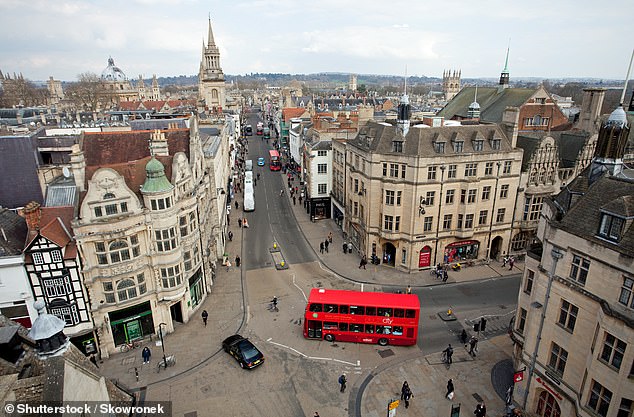
Oxford is plotting a £2-a-night tax on overnight visitors staying in a hotel or college room (Stock Photo)
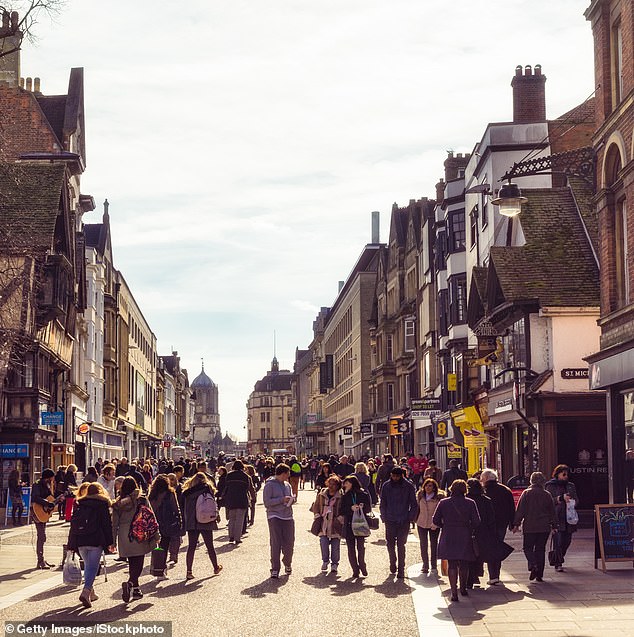
Visitors would be charged for each night they spend in the historic city under new plans that officials estimate could raise £2.5 million every year in tax receipts (Stock Photo)
Liverpool, meanwhile, levies a similar tax of £2 a night.
Oxford City Council has been approached for comment.
It’s the latest in a string of controversial policy ideas mooted in the area, following hot on the heels of proposals to impose a congestion charge – in the local authority’s latest move in the ‘war on motorists’.
Such a levy would be the first of its kind intoduced in Britain for more than two decades.
Under the proposed ‘temporary’ scheme, motorists would be slapped with a £5 fee every time they travel into the city centre.
Locals have warned that the plans would cripple businesses in Oxford, which have already been hit by a controversial low traffic neighbourhood scheme in the city.
If enforced, Oxford would be just the third city in the UK to introduce a congestion charge – after London and Durham in the early 2000s.
The plans were proposed by Oxfordshire County Council in June and could be introduced as early as this autumn.
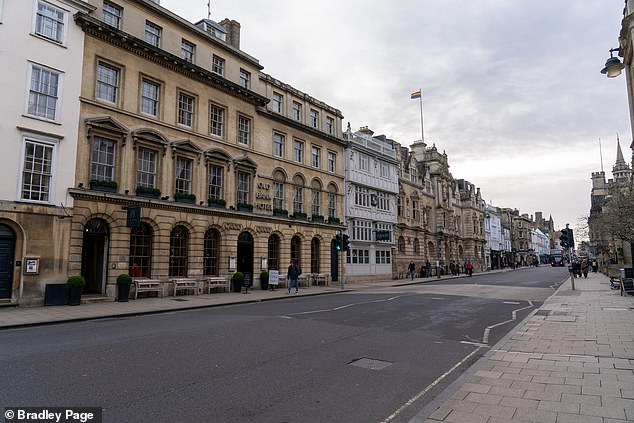
Oxfordshire County Council introduced a pilot ZEZ zone, which is the first in the country, in February 2022 with charges in place from 7am until 7pm
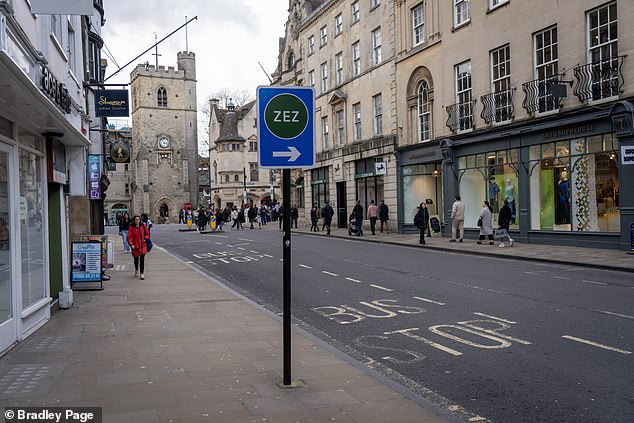
Locals warned the ZEZ plans would cripple businesses in Oxford, which have already been hit by a controversial low traffic neighbourhood scheme in the city
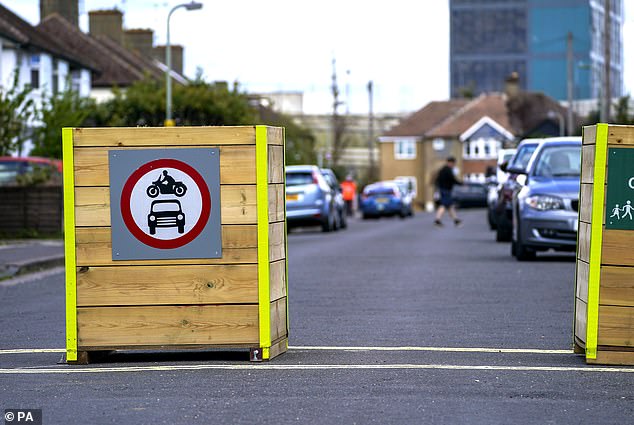
Low Traffic Neighbourhoods work by blocking cars from going down residential streets
The scheme would be enforced using automatic number plate recognition – with charging cameras placed on six major roads that lead into the city centre.
Oxford residents with a permit would be exempt from the £5 charge but anyone travelling into the city for work, tourism or shopping would have to pay.
Oxford City Council, a separate local authority, has also criticised the scheme.
Council leader Susan Brown said she was concerned that the scheme would allow wealthier people ‘to buy access to our streets’.
Oxford, which has a historic centre made up of a number of narrow medieval streets, has previously been named one of the most congested cities in the UK.












